Legal Update, May/June 2022
HTCs and Chapters: Partners in Education and Outreach
by Elizabeth “Issie” Karan, Legal Counsel
Hemophilia Treatment Centers (HTCs) ask the Hemophilia Alliance how they can support local chapters. As with all grants management questions, the way the support is structured matters. Below we review relevant guidance and provide suggestions for compliance.
Education and outreach are crucial components of the work of Regional Hemophilia Networks. The Notice of Funding Opportunity (NOFO) Announcements, which fund the Regional HTCs, includes language requiring HTCs to utilize program income to support education and outreach. Specifically, page 5 of the 2017 NOFO states, “reportable net program income is to be used for patient health, education, and supportive services necessary to provide comprehensive care to patients with hemophilia or related clotting and bleeding disorders served by the HTCs.” The NOFO released this year, at page 10, indicates that HTCs should have skill and knowledge used in the care of individuals with bleeding disorders, including “patient education and engagement in care.” The language from the NOFOs make clear that education is a required piece of the scope of the HTC grant.
Despite this, if an HTC wants to collaborate with any external organizations, the HTC must appropriately oversee these programs and activities in accordance with the grant rules. For example, Uniform Grants Guidance prohibits donations using federal funds or program income under 45 CFR § 75.434. This section states that, “Costs of contributions and donations, including cash, property, and services, from the non-Federal entity to other entities, are unallowable.” Additionally, 45 § 75.342, on monitoring and reporting program performance, provides that HTCs are responsible for oversight of the operations of award supported activities, and must cover each program, function or activity.
We recommend that HTCs structure support to Chapters in the form of a simple agreement which outlines the activities the Chapter will undertake using the financial support and provides information back to the HTC about how the funds were spent and what was accomplished. If you need examples of how these agreements can be structured or assistance, please contact the Alliance team.
Also in this Issue…
Notes from Joe
· Hang in There
Alliance Board Update
· New Board Members
Alliance Update
· Harmony in Hemophilia
· HTC Growth Initiative
Washington Update
· Alliance Advocacy Update
Notes from the Community
· Reminder: Announcing the Hemophilia Alliance Foundation 3rd Annual Innovation Grant

Comments are closed.